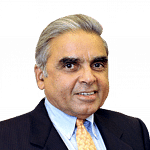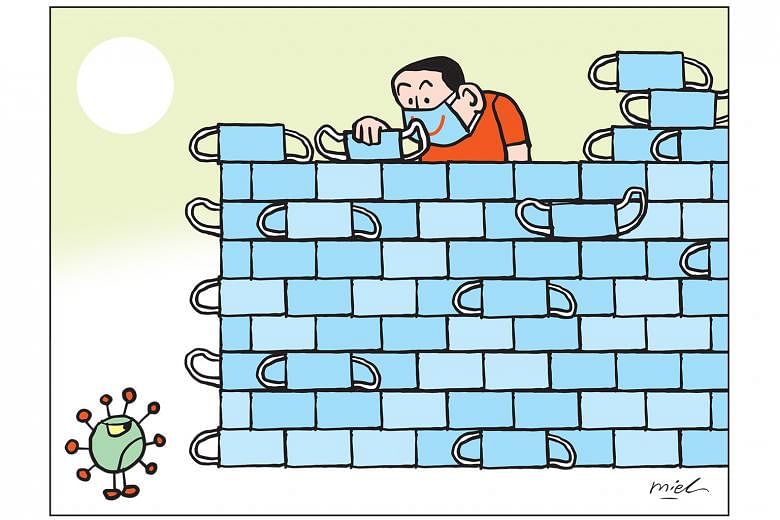Having lived most of my 72 years in this tiny island called Singapore and having lived through all the major phases of Singapore's recent history - from colonial rule, through independence and struggle to the present zone of comfort - I can genuinely say that in spirit and soul, I am a Singaporean.
Yet, as I confessed in "Can Singapore Survive?", while I know that I am a Singaporean, I am still not sure what a Singaporean identity is. Still, I can always recognise a fellow member of the exclusive Singapore tribe, especially when we meet on foreign shores. The tribal identity seeps out of our pores. We know that we belong to the same tribe. This Singapore tribe is dealing with a lot of anxiety now, although the real sources of anxiety may be unclear.
Some sources are clear and identifiable. Another phase of virtual lockdown. No more restaurant meals. Working from home. Children learning away from school. And the very poor are still struggling in Singapore. Still no hope for travel. The Singapore-Hong Kong travel bubble (which I was hoping to use) keeps receding.
But there are deeper sources of anxiety. How much longer will our economy remain shut? What's going to happen to Singapore Airlines and Changi Airport? On the political front, for the first time in decades, we have no clue who will be the next Singapore prime minister.
The predictable Singapore has become unpredictable. In short, it's not difficult to find sources of anxiety.
A lot of this anxiety is surfacing in various social media channels. It also explains why a lot of Singaporeans took umbrage over the word "umbrage" (and this, by the way, is a sentence that no non-Singaporean can understand, indicating how our tribal markers are created).
EXISTENTIAL ANGST
Before we drown in a sea of anxiety, I would like to explain to my fellow Singaporeans what I tell myself: Yes, we face challenges. Many of them are real. Yet, at moments like these, I try to also step back and count our blessings. And we have many. Let's mention a few.
We have many sources of anxiety. But we don't have issues of existential angst to deal with, like many other countries do.
Here are a few examples. The United States has to deal with the existential angst of becoming the No. 2 power in the world. This angst is real. President Joe Biden himself referred to it when he said: "China has an overall goal ... to become the leading country in the world, the wealthiest country in the world, and the most powerful country in the world… That's not going to happen on my watch..."
Mr Biden is right. It won't happen during his presidency unless he serves two terms (which I hope he will).
Whoever the next US president is, China could become the No. 1 economy, in nominal market terms, by 2028.
China faces a mirror-image existential angst. The Chinese people have experienced - in terms of human development - the best 40 years in 4,000 years of Chinese history.
Yet, as indicated above, the US is going to make a last-ditch effort - for most of this decade - to remain the No. 1 power.What this means is that China is going to enter its most challenging decade of geopolitical rivalry. And it has to seriously consider whether it should go to war over Taiwan in this decade.
We don't have to make similar life and death decisions in Singapore.
The other advanced countries face equally daunting challenges. Many Europeans feel deep existential angst about the demographic explosion in Africa which will eventually spill over into Europe, igniting far right populist parties. Europeans feel that a gloomy future looms for them.
Even in our Asean region, blessed with economic growth, our neighbours face challenges. Malaysia has never been so fractured politically. No stable political coalition is likely to emerge soon. The political future of Thailand looks uncertain. Myanmar will remain explosive for quite a while.
The only real bright star in our region is Indonesia, which had the wisdom to re-elect a truly gifted leader, President Joko Widodo, who enjoys enormous trust among his people because he genuinely cares for them.
Yet, Indonesia is also an exception in the developing world. Billions of people in South Asia, Africa and Latin America have to deal daily with hard issues of physical or economic survival.
Against this global backdrop, any interplanetary observer visiting earth would be puzzled that among the unhappiest people on our planet are Singaporeans. By any objective measure, we should be among the happiest.
HARD TRUTHS
Yes, there have been recent setbacks. We could have stopped travellers from South Asia earlier.
But the hard truth is that there are trade-offs for Singapore closing up: we cannot be like Australia and New Zealand and cut ourselves off from the world. They can grow their own food. We can't.
More importantly, our total trade is three times the size of our GNP. If we stop flows of trade through our port and airport, our economy would shrivel.
And here's the most painful hard truth: if we want to enjoy the benefits of being the most globalised economy on earth, we have to accept that there are risks.
Deng Xiaoping understood this well. When he opened China up to globalisation, he said that open windows also bring in flies. We're also dealing with a pernicious and resilient virus. It can return from anywhere. Taiwan had virtually no visitors from South Asia. Yet, it's also facing a new resurgence.
At this point I remind myself that while we face risks, we also have formidable resources. Few governments in the world could have deployed $100 billion in one year to keep the economy going. Equally importantly, we have a powerful asset that few countries have: good governance.
The quality of mind, integrity and dedication of the people in key agencies is amazing, especially in the medical field, where we have actually pulled off a few miracles. In one statistic, Singapore is among the best: the percentage of fatalities of Covid-19 patients. Our number is 0.1 per cent, compared with the US (1.8 per cent), the United Kingdom (2.9 per cent), France (1.8 per cent), Germany (2.4 per cent), Belgium (2.4 per cent) and Japan (1.7 per cent).
In short, life will always be full of risks. I know that I have to accept the risks from Singapore staying open. I am grateful that we have developed strong institutional capabilities to manage these risks.
We learnt from our painful experience with Sars - which led to construction of the National Centre for Infectious Diseases. And we keep learning how to handle Covid-19 better, every week.
None of us in Singapore fear that we will be deprived of oxygen in hospitals. What I can take for granted in Singapore are major aspirations in many countries.
So, my fellow Singaporeans, please do not stop airing your frustrations. Covid-19 is placing extraordinary demands on us and on all our institutions. Complaining gives useful feedback, and in any case, seems to be an integral part of being Singaporean.
Yet, as we vent our frustrations and unhappiness, we should remember that despite the present setbacks, Singapore remains one of the safer places in our Covid-19 world. There is much that is right and, therefore, room for cheer as we navigate out of the present storm.
• Kishore Mahbubani is a distinguished fellow at the Asia Research Institute at the National University of Singapore, and the author of Has The West Lost It? and Has China Won?


